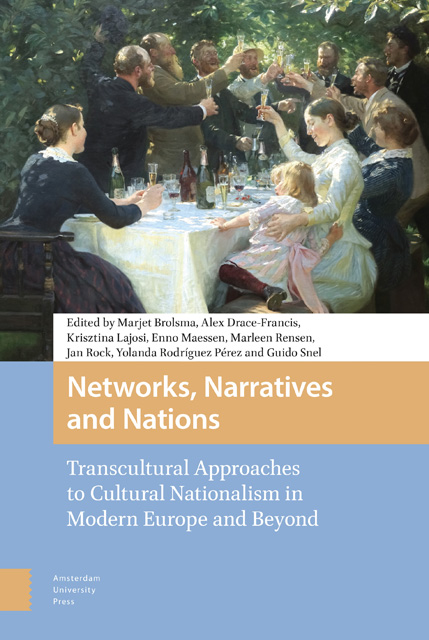 Networks, Narratives and Nations
Networks, Narratives and Nations Book contents
11 - The Canonization of the Artisan around 1900
Published online by Cambridge University Press: 16 November 2022
Summary
Abstract
Around 1900 the artisan became a national symbol throughout Europe. While the peasant had been lionized ever since the Romantic era, the craft guilds were denigrated as remnants of feudalism. This changed with the Arts and Crafts movement. Towards the end of the nineteenth century, the artisan began to appear as a representative of the nation at international exhibitions, which focused increasingly on vernacular arts and traditions. In this way, craft products became a part of the national heritage, while artisans were cherished as sources of national authenticity. In the early twentieth century, traditional crafts were increasingly appreciated by artists, collectors and consumers, and many of their most extraordinary products were seen as embodying the nation's Volksgeist or folk-spirit.
Keywords: artisan; national symbol; Europe; belle époque; interwar era
In 1934, one year after the Nazis came to power, the German city of Düsseldorf took the initiative in organizing a grandiose exhibition thematizing the “new era in the new Reich,” which would open its doors in 1937. The idea was to promote the collaboration between artists, manufacturers and artisans in order to ensure the competitiveness of German products on the international market. The exhibition would combine a model housing settlement and a garden display with an arts and crafts exhibition. Although traditional crafts were in clear decline, each region had to provide its own “typical” artisanal workshop.
This Nazi exhibition is a particularly clear example of how an idealized rural world could be made to function as a model for contemporary society: settlements in which peasants and artisans constituted a community rooted in the soil of the homeland where class struggle did not exist. What was most surprising was that a small-scale economy, where artisanal labour dominated and each family had a barn and vegetable garden, was considered a realistic solution in times of economic crisis. This idealization of the rural world and its artisanal traditions as the essence of the nation was not particular to the Nazis but could also be found in other countries and under a great diversity of political regimes.
- Type
- Chapter
- Information
- Networks, Narratives and NationsTranscultural Approaches to Cultural Nationalism in Modern Europe and Beyond, pp. 137 - 146Publisher: Amsterdam University PressPrint publication year: 2022


